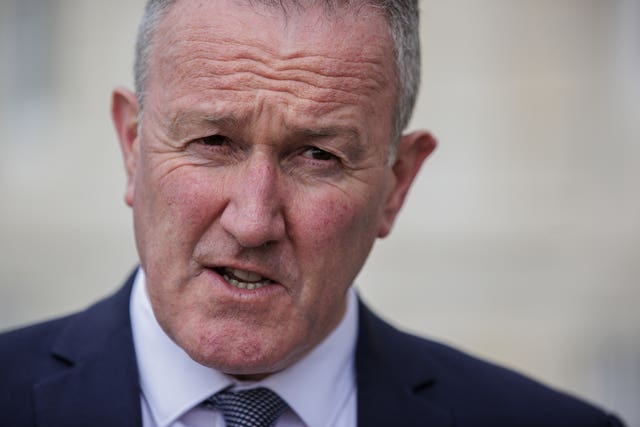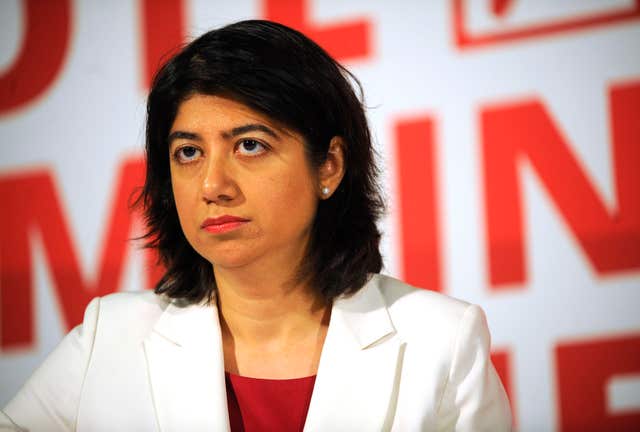NI tourism sector braced for hit as full rollout of visa waiver scheme looms
The industry is concerned that international tour operators will omit the region from all-island itineraries if they have to apply for the new ETAs.

The Northern Ireland tourism sector faces a significant hit if visitors arriving across the Irish border are not exempted from the UK’s new visa waiver scheme, industry chiefs have warned.
From January 8, all non-European visitors to the UK who do not require a visa will instead need to purchase an Electronic Travel Authorisation (ETA).
From April 2, European visitors will also need an ETA, which cost £10 and is linked to a traveller’s passport. The initial introduction of the ETA earlier this year applied only to travellers from the Gulf states.
Irish citizens travelling into Northern Ireland do not require an ETA because they are entitled to move freely in the UK under the Common Travel Area arrangements, and non-Irish citizens who are resident in Ireland are being granted an exemption under the visa waiver scheme.
Tourism businesses in Northern Ireland have been warning for more than two years about the potential consequences of the post-Brexit scheme, highlighting that 70% of international visitors to the region travel across its land border having arrived in the Republic of Ireland first.
They fear that individual travellers and tour companies organising trips to the island of Ireland will decide against taking in the region when they learn of the need to apply for and pay for an ETA.
Their concerns are intensifying as the full rollout approaches and with the UK Government showing no appetite to grant an additional exemption under the scheme.

Tourism promotion bodies – Tourism NI and Tourism Ireland – have also expressed concern about the impact on the sector, as has the Irish Government.
Stormont Economy minister Conor Murphy is pressing the UK Government to grant an exemption to tourists who cross the border into Northern Ireland.
A collective of 25 key players in the industry has written to the minister for migration and citizenship at the Home Office, Seema Malhotra, warning of the implications if an exemption is not granted.
Joanne Stuart from the Northern Ireland Tourism Alliance (Nita), which is spearheading the lobbying effort, said up to 20% of revenue – around £200 million – from overnight tourist stays in Northern Ireland is generated by international visitors.
She said the prospect of a tourist without an ETA being stopped and potentially detained and deported would cause serious reputational damage to the local tourism industry.

Ms Stuart said tourist businesses are also concerned that overseas tour operators will stop trips over the border to avoid the administrative hassle of arranging ETAs for all their clients.
Nita is liaising with the Government to ensure information about the ETA is effectively communicated to all visitors planning trips to Northern Ireland next year amid fears that many tourists landing in Dublin will be unaware of the new requirement to travel north.
“Northern Ireland is doing really well for tourism,” said Ms Stuart.
“We’ve come out of the pandemic, the industry has shown how resilient it is.
“We are starting to get back to where we were before the pandemic and this is an obstacle that we do not need.
“We need to grow our international markets. We are promoted as the island of Ireland – and this is something that makes people think about whether they want to come to Northern Ireland or not.
“We are on an island, so there’s a lot of choice for tour operators to decide not to include Northern Ireland in their trip.
“And although this is very small numbers from a UK perspective, this is a significant impact financially for Northern Ireland at a time when we have a cost-of-living crisis, we have the impact on business costs, with the National Insurance increase for employers and the increase in the National Minimum Wage.
“So businesses are dealing with a lot, and the last thing that we need to do is put any of our business at risk due to this permission to travel.”

A spokesperson for Tourism Ireland said: “Typically around 70% of non-British visitors to Northern Ireland arrive first in Ireland.
“Tourism industry partners on the ground have voiced concerns that for international visitors travelling on the island of Ireland, the requirement of an ETA to visit Northern Ireland could create a sense of friction or ‘an extra step’ in travel planning.
“Knowing that the ETA scheme will be introduced next year, Tourism Ireland will continue to ensure easy access to the right information for overseas visitors and travel trade contacts and will showcase all the ‘must visit’ reasons for them to choose Northern Ireland.”
Mr Murphy’s department said the minister shared the concerns articulated by the industry.
“The introduction and planned rollout of the ETA scheme is consistently raised with the minister,” a departmental spokesperson said.
“Our all-island economy is vital, and seamless all-island travel is key to building on the growth we have seen in our tourism sector.
“The strong concerns expressed by the tourism and travel industry in the north and its potential impact on our tourism product and our wider economy, are concerns that the minister shares.
“Minister Murphy reiterated these concerns recently during a meeting with Minister Malhotra and outlined that this is an issue where he believes solutions are needed to protect our tourism, travel and hospitality sector in the north, especially as these businesses are facing a range of challenges such as rising energy and staff costs including additional impacts from the British Government’s recent Budget.”
A UK Government spokesperson said: “People arriving in Northern Ireland need to enter in line with the UK’s immigration framework, including obtaining an ETA if required.
“We are committed to working with a wide range of stakeholders to help ensure the ETA requirement is communicated effectively and to mitigate against it being seen as a barrier to cross-border tourism on the island of Ireland.”





